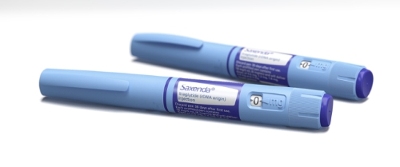August 2008 - The drug rituximab causes considerable kidney injury healing in patients with membranous nephropathy, a common form of kidney disease, according to a study appearing in the November 2008 issue of the Clinical Journal of the American Society Nephrology (CJASN). The results suggest that this condition, previously destined to progress to kidney failure in 30-40 percent of cases, can actually be healed in some patients.
Membranous nephropathy (also known as membranous glomerulopathy) is one of the most common immune-mediated kidney diseases, and is thought to be caused by autoimmune reactions against the kidney. The disease, which is characterized by the loss of large amounts of protein in the urine, leads to impaired kidney function that may ultimately require dialysis or renal transplantation.
A variety of immunosuppressive drugs have been tested to inhibit the production of the antibodies that attack the kidneys during the progression of membranous nephropathy, but their effects have been inconsistent. These therapies also can cause significant toxicity and can suppress a patient's immune system, exposing the patient to an increased risk of infections and illnesses.
A new drug called rituximab selectively depletes B lymphocytes, the cells that produce the damaging autoantibodies of membranous nephropathy. The drug was initially developed as a cancer treatment for patients with B cell lymphoma, but kidney researchers have shown that this drug also is safe and reduces the amount of protein lost in the urine due to membranous nephropathy. These same researchers, led by Piero Ruggenenti, MD, of the Negri Bergamo Laboratories in Bergamo, Italy, have now provided evidence that rituximab actually reduces the amount of kidney injury in patients with the disease.
In this study, Dr. Ruggenenti and his colleagues treated 50 patients with membranous nephropathy with rituximab. The investigators found that 10 of the patients eventually achieved a complete remission of their disease, seven of whom provided consent to participate in further evaluations, including additional kidney biopsies. In these patients, deposits of autoantibodies eventually disappeared or were almost entirely reabsorbed and the damage originally noted in certain kidney structures significantly healed.
Continue Reading Below ↓↓↓
According to Dr. Ruggenenti, "This represents the first demonstration that kidney injury in membranous nephropathy can regress after selective depletion of B cells. Thus, the present data provide a strong rationale for using rituximab to treat patients with membranous nephropathy."
The authors concluded that their study suggests that the functional and biological abnormalities of membranous nephropathy can be reverted with a safe and selective drug. "Whether this may apply to other [similar kidney conditions] and may translate into long-term protection from renal function loss and the potentially life-threatening complications� remains to be established," they wrote.
The article, entitled "Effects of Rituximab on Morphofunctional Abnormalities of Membranous Glomerulopathy," will be available in the November print issue of CJASN.
ASN is a not-for-profit organization of 11,000 physicians and scientists dedicated to the study of nephrology and committed to providing a forum for the promulgation of information regarding the latest research and clinical findings on kidney disease. ASN publishes CJASN, the Journal of the American Society of Nephrology (JASN), and the Nephrology Self-Assessment Program (NephSAP). In January 2009, the Society will launch ASN Kidney News, a newsmagazine for nephrologists, scientists, allied health professionals, and staff.
Source: American Society of Nephrology (ASN)











